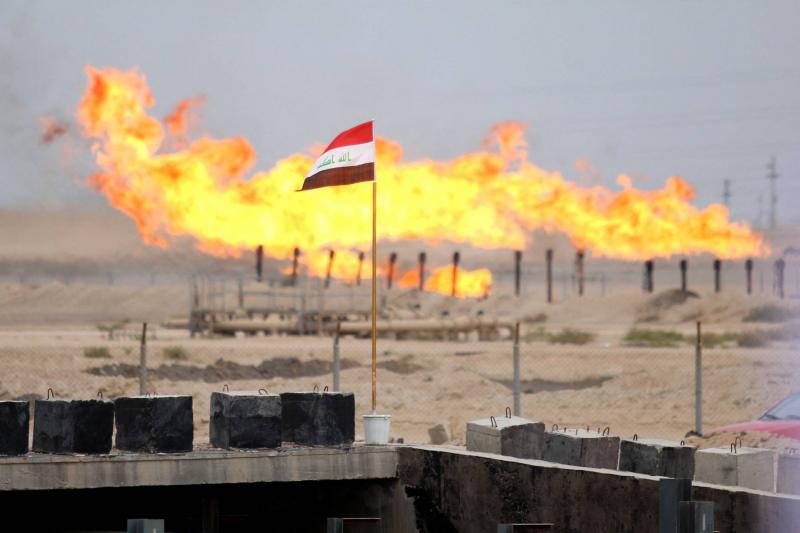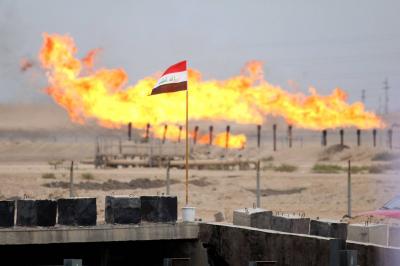Moody's Credit Rating Agency reviewed the risks of the war in Gaza on the Iraqi economy, maintaining Iraq's rating at CAA1, with a stable outlook. The agency stated in a report that the rating reflects Iraq's financial and external reliance on hydrocarbons, which could lead to vulnerability to oil price fluctuations and risks associated with the transition away from carbon.
Moody's noted that "the ongoing conflict between Israel and Hamas" remains primarily concentrated in Gaza. However, an escalation of the conflict regionally involving Iran and the United States, which Moody's considers a low probability scenario at this stage, would have material implications for Iraq through several channels. Most importantly, any escalation of tensions in the Gulf could threaten maritime shipping routes through the Strait of Hormuz, which Iraq relies on for most of its oil exports.
The agency indicated that the dominance of oil in government revenues and exports would implicitly result in immediate and significant pressure on public finances and liquidity, depending on how long this disruption lasts. However, Iraq's low reliance on external financing and the support provided by the recovery of foreign exchange reserves reinforce a set of mitigating factors even in this scenario.
Details from Moody's confirmed that the rating reflects Iraq's economic, financial, and external dependency on the oil and gas sector, leading to significant exposure to oil price volatility and carbon transition risks. Extremely weak institutions and governance severely restrict policy effectiveness and the government's ability to respond to domestic and external shocks, as well as the competitiveness of the economy.
The agency's report highlighted profound political division and Iraq's vulnerability to geopolitical tensions and increasing social pressures resulting from high youth unemployment and inadequate access to basic services, all factors exposing Iraq to political event risks.
Rising global oil prices have led to a major shift in Iraq's financial and external accounts, supporting public debt reduction and a notable recovery in the Iraqi Central Bank's foreign exchange reserves to record levels. However, the expansive budget extending over three years and limited reforms will continue to support a steady and renewed deterioration in financial metrics, reinforcing structural vulnerabilities in Iraq.
The caps on the local and foreign currencies in Iraq remain unchanged, amidst the economy's heavy reliance on a single revenue source, very high political risks, and largely unpredictable institutions. The report indicated that Iraq's exceptionally high share of oil revenues in total government revenues (around 90%) supports the government's financial accounts' high sensitivity to developments in global oil prices and production levels. In the absence of any stabilizing factors, the financial situation and liquidity fluctuate alongside oil prices.
According to Moody's, Iraq remains one of the most oil and gas producers exposed to carbon transition risks due to the dominance of oil in government revenues and exports, combined with limited adaptability resulting from institutional, social, and political obstacles to reform. Iraq also ranks among the lowest countries on corruption indices, placed 157 out of 180 countries surveyed in the 2022 Corruption Perceptions Index published by Transparency International.
Weak public financial management means the government is under financial stress, especially during oil price shocks (like those seen in 2015-2016 and 2020), when government revenues drop and access to external financing tightens.
Local political and social tensions impact policy effectiveness and public finance outcomes, and progress is likely to remain limited in efforts to diversify the economy, enhance non-oil revenue collection, and address public financial management deficiencies.
The new government agenda focuses on reducing corruption, enhancing economic opportunities, and improving public services. Although these policy areas are considered essential for socio-economic outcomes in Iraq, according to Moody's, the government's ability to pass structural reforms through a large but unworkable parliamentary coalition remains largely uncertain.




